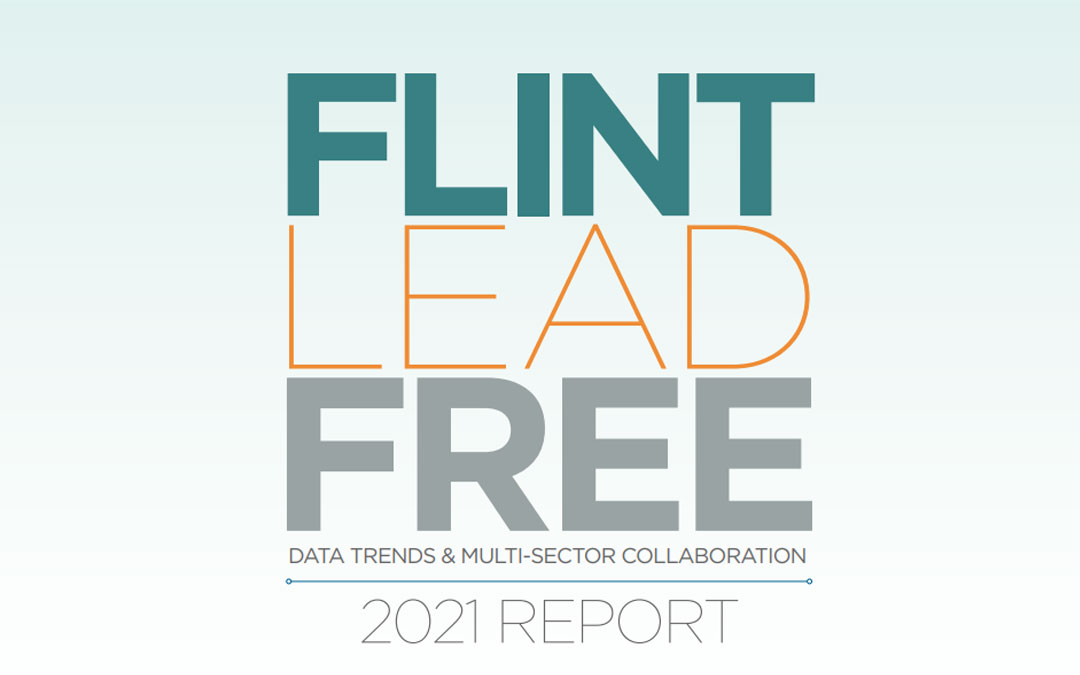Flint Lead Free has released its 2021 report with the goal of sharing the widespread community efforts to reduce lead exposure, highlighting progress from new investments and partnerships, and demonstrating the positive impact on the Flint community.
A workgroup of the Flint Registry, Flint Lead Free is a multidisciplinary group of partners – including Flint residents, nonprofits, landlords, governmental agencies and more – all striving to make Flint a lead-free city.
“From pipe replacements to home abatements, Flint is leading the nation in efforts to remove lead from homes before kids are poisoned. We have more work to do to eliminate this systemic inequity, but we are definitely moving in the right direction,” said Dr. Mona Hanna-Attisha, associate professor of pediatrics at Michigan State University College of Human Medicine and director of MSU-Hurley Children’s Hospital Pediatric Public Health Initiative.
The Flint Lead Free report shares lead-related trends up to the end of 2019 emphasizing primary prevention efforts currently underway in the City of Flint. Despite challenges such as a time lag for obtaining data, the trends year over year show significant decreases in lead risks.
In addition to the positive benefit of lead elimination for health and development, the Flint Lead Free report also notes the economic benefits. Preliminary economic analysis of Flint’s lead elimination efforts estimates that lead prevention activities will generate $53.3 million in future economic benefits for children when considering the number of pipes replaced and homes abated from 2016-2019.
“An ounce of prevention really is worth a pound of cure,” said Lydia Starrs, co-chair of the Flint Lead Free workgroup and Program Officer at the Community Foundation of Greater Flint. “From increases in economic productivity to decreases in health care and education costs, it’s impressive to see how much money is saved by these proactive efforts. But more importantly, when we remove a poison from a child’s environment, the benefits to generations of children and an entire community are priceless.”
The Flint Registry contributes to lead elimination efforts by convening Flint Lead Free partners, enrolling individuals exposed to the lead-contaminated Flint water, screening for ongoing environmental lead exposure via a survey of environmental risks and connecting individuals to lead-eliminating services like the Lead Safe Home Program. The Lead Safe Home Program is a free program that finds and removes lead in a child’s home.
“We had such a positive experience with the Lead Safe Home Program. When we returned home, the house looked amazing, and we were even surprised that they did some work that we had not expected but were pleasantly surprised that they did,” said Edward Moore, Flint resident and father. “I was so happy with the experience. I feel safer, and they did A+ workmanship.”
The global COVID-19 pandemic has created additional challenges as more kids have been inside homes with potential lead exposure, blood lead screening rates have decreased, and pauses have occurred in lead abatement work. An environmental injustice, lead exposure remains a disproportionate burden in the environments of Flint kids, reinforcing the need for Flint Lead Free to continue and enhance its work.
Click here to download Flint Lead Free 2021 Report.
To learn more or to enroll in the Flint Registry, visit flintregistry.org, email flintregistry@hc.msu.edu, or call (833) GO-FLINT.
After successful completion of enrollment, participants are connected to services like Lead Safe Home Program and mailed a $50 Appreciation check.






